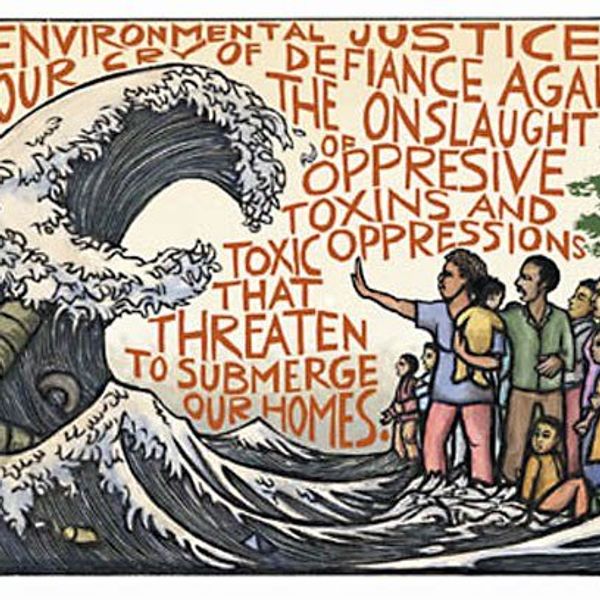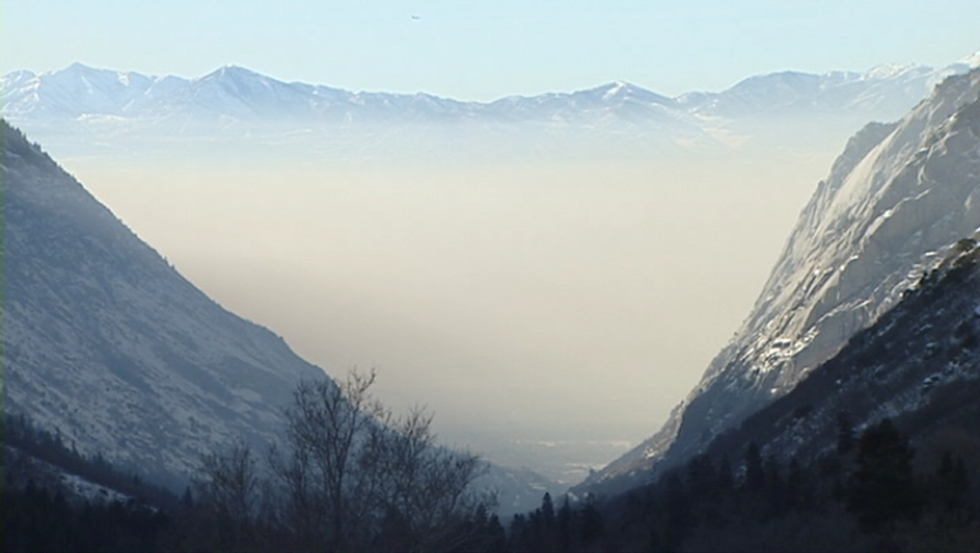I grew up in a devoutly conservative home. Naturally, I grew up assuming the environmental movement was a scam. By senior year of high school, before I took AP Environmental Science, I assumed global warming was made up, the Amazon Rainforest was not in dire straits and the environmentalist movement was actually a liberal government power grab.
After AP Environmental Science, my views have matured. I still can’t buy into the environmentalist movement whole-heartedly – it has too many flaws. But I do respect and support various efforts.
What follows is a list of why I divorced my former views and also a list of why I cannot abandon them.
1. There are people like Sanjayan.
Dr. Sanjayan is the largest factor in why I came to respect the environmentalist movement. He’s passionate about saving nature, but he’s also passionate about saving people. He recognizes that poverty and poor education drive people to poor environmental practices. He asserts that human deprivation must be combatted alongside natural deprivation. His zeal for people as the answer to conservation is inspiring.
2. This is where I grew up.
Those aren’t clouds or fog suffocating Salt Lake City, Utah. It’s smog – the nice word for pillows of pollution enveloping the valley. Every winter, inversions and poor air quality plague Salt Lake. The air is gross, and after having breathed it for 14 years, I decided to buy into helping make it better.
3. Progress is being made.
All too often the environmental movement focuses solely on problems. People are destroying the rainforest; oil is polluting the air; garbage is ravaging the ocean. But in AP environmental science, I finally heard of some of the progress being made. A current event: the hole in the ozone layer is beginning to shrink after years of environmental effort to fix it.
4. Global warming is a thing.
Even Fox News says so. The government overhypes this problem and tries to guilt the West into irrational standards. Global Warming will not be as catastrophic as predicted, but is nonetheless undeniably apparent and should be combatted.
5. God asks us to steward his creation.
After God created the earth, he commanded man, “Fill the earth and subdue it. Rule over the fish in the sea and the birds in the sky and over every living creature that moves on the ground.” (Genesis 1:28). Good rulers protect their kingdom; man must protect the environment.
Above is why I’ve leaned towards the middle of the environmental scale, but following is what prevents me from jumping into the other side.
1. Most environmentalists are not like Sanjayan.
Dr. Sanjayan sees people as part of the solution. We are an integral part of creation and, as such, must live well with it. But most other conservationists, like E. O. Wilson, see humans as the problem. They say humans are disrupting nature; they value nature over human beings, instead of viewing nature as a tool and gift for humans.
2. International efforts have been skewed.
The United States never signed the Kyoto Protocol, perhaps the most comprehensive environmental agreement of all time. Even after my change in views, I still agree with this decision. The Protocol allowed China and India to ignore environmental restrictions. Considering India and China’s state at the time of the Protocol, allowing them to adhere to less stringent standards would have been acceptable, but to dismiss them altogether is inadmissible. This is a global issue and, as such, requires global involvement. Far too many efforts require sacrifices from much too narrow groups.
3. Not funding the keystone pipeline makes no sense.
It is safer to transport oil via pipeline than truck. It is safer to pay Canada for oil than ISIS and Middle Eastern Countries. But environmentalists strike down good projects like these in the name of helping the environment.
4. There is an inherent contradiction between evolution and specie protection.
Environmentalists generally adhere to the view that evolution created the world we know today and that the concept of survival of the fittest was key to that process. Yet, they turn around and claim we must defend weak species. We must protect environments as they are because if we alter them, species better adapted to the new environment will overrun the old specie. Environmentalists play both sides of the same card.
5. One must value people.
I mentioned this in #1, but it needs reiteration. Nature was made for humans, not the other way around. Environmentalists all too often confuse their values and assign more dignity to a pristine, primal grassland than to a hungry, human being. As important as the environment is, souls are worth far more.






















